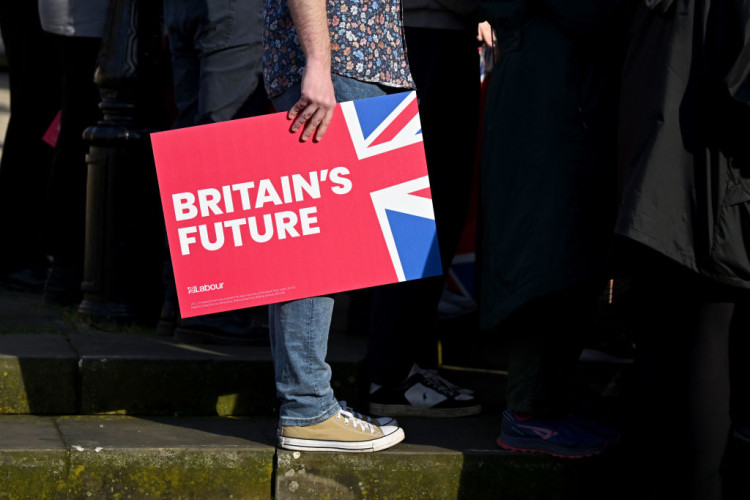As the May 2nd Local Elections approach in England, the spotlight is naturally on several key battlegrounds and how the results will impact the national political picture. While these elections are set to be the most important test for the political parties before the general election, their outcomes are also set to be impactful for businesses in their own right.
Across England, there are more devolution deals than ever before, with the 2024 Local Elections leaving 51% of English citizens having some form of devolved government. These administrations will have powers over issues ranging from transport to business support and regeneration – meaning many businesses with a regional footprint will directly feel the outcome of these votes.
On top of that, a potential Labour Government is pledged to devolve even greater economic powers to the English regions. More than ever before, understanding of, and engagement with, the political dynamics of local government is set to be essential for businesses.
The Significance of Devolution
The devolution process began in the late 1990s, focusing on Scotland, Wales and Northern Ireland. There has been a long-held belief by many politicians that areas in England require similar localised powers. Kicking off with the Mayoralty of London in 2000 and followed up by a slew of new Metro Mayors and Devolution deals since 2010.
The May 2nd Local Elections: Key Players
On May 2nd, voters will elect over 2,600 councillors and 10 metro mayors across England. Here’s what’s on the ballot:
Councillors: These local representatives influence critical services such as education, housing, transportation, and social care.
Metro Mayors: These influential figures wield substantial powers and budgets. They act as regional spokespeople, advocating for local growth and addressing inequalities.
Battlegrounds to Watch
The Labour Party is likely to make sweeping gains in councils and already holds most of the mayoralties. The two key battlegrounds to watch are the Conservative-held mayoralties in the West Midlands and the Tees Valley - which the Tories are already pointing to as being the key bell weathers in their expectation management.
1. West Midlands
Incumbent Mayor: Andy Street (‘Independent-minded’ Conservative)
Challenger: Richard Parker (Labour)
The West Midlands is a crucial battleground. Labour aims to unseat Andy Street, who seeks a third term. This election is crucial for both parties, as there are ten Conservative-held constituencies in the West Midlands which Labour could potentially win based on current polling. When Labour was last in power, they won nine of these seats (or their predecessors) except Sutton Coldfield. According to the latest YouGov MRP model, Labour is projected to win all nine seats again in the next general election. However, there have only been three polls conducted for the West Midlands so far, all have Labour and Richard Parker ahead of Street by varying degrees (with two suggesting the gap is within the margin of error). It remains to be seen the impacts of the national and local campaigns will have, and if the struggles of Birmingham Council will damage Labour support.
2. Tees Valley
This will be a key result in the May 2nd elections, especially for the Conservatives. Houchen is the poster child for the policies around ‘levelling-up’ such as the Tees Freeport and the Towns Fund. A loss for the Conservatives would demonstrate that support in the ‘Red Wall’ is fading away and would symbolise the broader perception of ‘levelling-up’ of being all talk and no substance.
Incumbent Mayor: Ben Houchen (Conservative)
Challenger: Chris McEwan (Labour)
Tees Valley, where Houchen secured a whopping 73% of the vote in 2021, is another prime target for Labour. Defeating Houchen would be a significant achievement, buoying the party’s confidence even more for the next general election. It would also raise further questions in Tory ranks about Rishi Sunak’s leadership. If Labour wins, it will almost certainly be portrayed by Labour as a reflection of the national mood and a clear sign that people in northern England do not feel ‘levelled up’.
The Bigger Picture: Devolution and General Elections
These local elections serve as a litmus test for the upcoming general election. Experts will also be closely monitoring voter turnout, to identify any impact of controversial voter ID rules introduced during the May 2023 local elections.
Labour is consistently about 20 points ahead in national polls, which projections suggest should mean the Conservatives lose about 500 councillors or half the seats they are defending. If this comes to pass, then it would suggest that the national polling is roughly right and could see Keir Starmer swept into Number 10 at the General Election with 400 plus seats.
Labour’s Devolution Agenda
With the Metro Mayoralties controlling large aspects of planning and transport, businesses need to be prepared to engage with these local politicians as there is a potential for a Labour Government to accelerate rather than reverse the ongoing extension of devolution. Therefore, the ability to engage with Mayors will become even more important if Labour take power later this year. Here’s what we might expect for devolution if Labour wins the 2024 General Election:
Completing the Map: Labour pledges to “complete the map” of English devolution. If elected, they’ll extend devolution to areas that currently lack it, ensuring every part of England has a deal backed by long-term funding. Potentially taking learnings from the ‘Trailblazer’ devolution deals seen in Greater Manchester giving the Greater Manchester Combined Authority control over local transport systems, skills, employment, housing, regeneration, trade, investment, innovation, business support and finance.
Solidarity Clause: To enhance cooperation between devolved governments, Labour proposes a “solidarity clause”—a legal obligation for collaboration across different levels of government and institutions throughout the UK.
Transforming UK Politics: This will entirely depend on the size of the election win and the state of play in the next parliament. But, Labour had previously been keen on some radical policies such as Gordon Brown’s ‘Assembly of the Nations and Regions’ alongside general House of Lords reforms. While these seem to have fallen out of favour with the Labour Leadership, if they are swept to power with a landslide majority, they may come back to their early radicalism.
If Labour secures victory in the upcoming General Election, there could be a significant redistribution of powers across the country. Businesses will face an increasingly complex political landscape to navigate – with centres of power and influence growing outside of Whitehall.
The May 2nd local elections aren’t just about choosing local representatives: they’re about shaping the future of devolution in England. As voters head to the polls, they hold the power to influence policies that directly impact their communities and the nation. If Labour can win the two currently Conservative-held mayoralties, it will likely mean that Labour will be in control of local and national governments by the end of 2024, and businesses will need to adapt to how devolved governments interact with national government.








